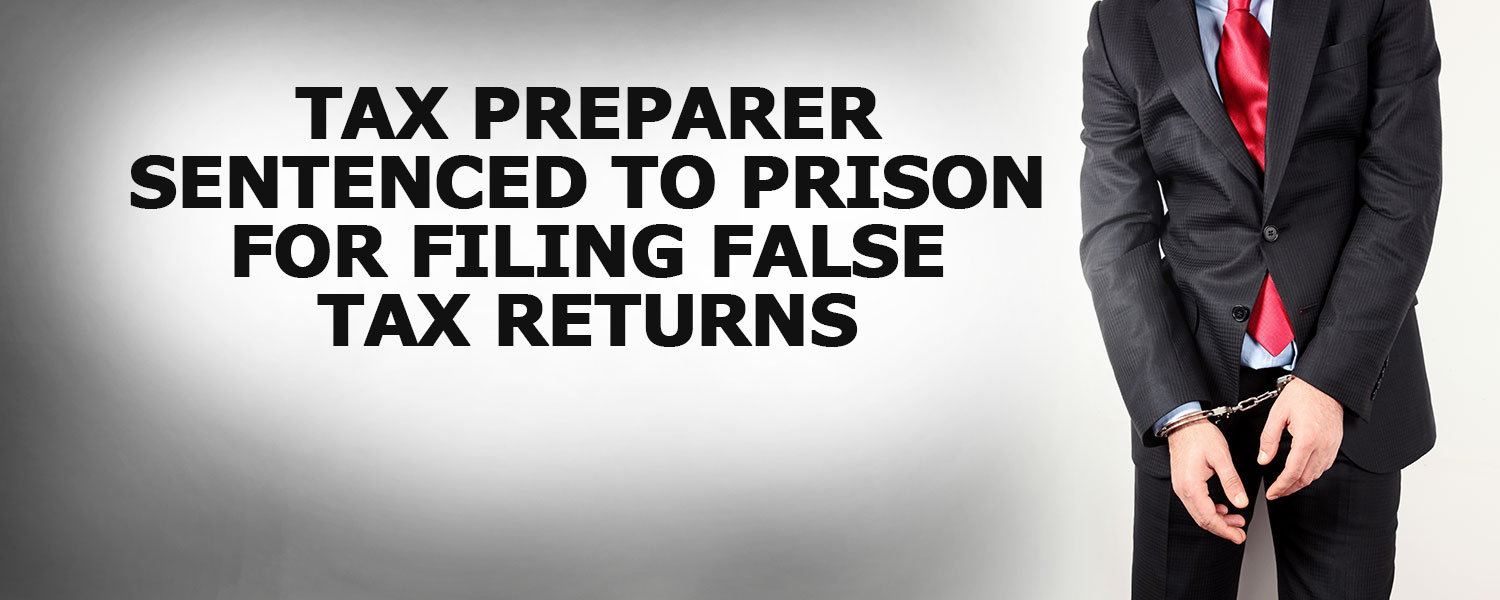Mississippi Tax Preparer Sentenced to Prison for False IRS Returns
Mississippi Tax Preparer Sentenced to Prison for False IRS Returns
The U.S. Attorney’s Office for the Southern District of Mississippi announced on November 5, 2020 in a press release that Talvesha Glaude who owned and operated a tax return preparation business was sentenced to 22 months in prison for preparing false income tax returns and ordered to serve one year of supervised release and to pay restitution to the IRS in the amount of $183,360.
The Details
Talvesha Glaude of Moss Point, Mississippi owned and operated a tax return preparation business under multiple names, including TMG Tax Service and Regional Tax Service. From 2013 through 2019, Ms. Glaude prepared tax returns for clients seeking from the IRS inflated refunds based on fraudulent dependents, federal income tax withholdings, and education credits. In addition to preparing false returns for her clients, Ms. Glaude also filed false returns for herself for the tax years 2014 through 2018.
The conviction culminated what started from a comprehensive investigation conducted by the IRS Criminal Investigation Division which was then referred to the Tax Division of the U.S. Department Of Justice for prosecution.
Tax Preparer Penalties
Even with the possibility that a tax preparer can be subject to criminal prosecution, tax preparers face substantial civil penalties for failing to meet standards to their clients and what is imposed under the Internal Revenue Code. Internal Revenue Code § 6694(a) imposes the standards that tax preparers must follow. Prior to the 2007 amendment to this Section, tax return preparer penalties applied to a person who prepared for compensation, a federal income tax return or claim for refund. The penalties did not apply to any other types of returns such as employment or estate tax returns. The former Section also included a $250 penalty for an income tax return preparer who knew or reasonably should have known, of the position that caused the understatement due to a frivolous position or an undisclosed position for which there was not at least a realistic possibility of being sustained on the merits. An income tax preparer engaging in willful or reckless conduct with respect to preparing an income tax return under the former Section was subject to a penalty of $1,000.
New Code §6694(a) as amended by the Small Business And Work Opportunity Tax Act of 2007 (the “Act”) extends to all types of federal tax returns, including estate and gift tax returns, employment tax returns, excise tax returns and returns of exempt organizations.
The Act now requires that the preparer have a reasonable belief that the tax treatment of the position is “more likely than not” the proper treatment. The penalty which can be imposed on the preparer is the greater of $1,000.00 or 50% of the income derived (or to be derived) by the preparer. For willful or reckless conduct, the penalty which can be imposed on the preparer is the greater of $5,000.00 or 50% of the income derived (or to be derived) by the preparer.
Other civil penalties that can be imposed against income tax returns preparers include:
- Failure by an income tax preparer to sign a required return. IRC § 6695(b).
- Failure by an income tax return preparer to furnish a required taxpayer identification number. IRC § 6695(c).
- Failure by an income tax return preparer to furnish a copy of the tax return to the taxpayer. IRC § 6695(a).
- Failure by an income tax return preparer to retain a completed copy of the return or a record of the taxpayer’s name, identification number, taxable year, and type of return prepared. IRC § 6695(d).
- Failure by an income tax return preparer to comply with the due diligence requirements with respect to determining a taxpayer’s eligibility for, or amount of, the earned income credit. IRC § 6695(g).
- Aiding and aiding and abetting the understatement of a tax liability. IRC § 6701.
- Disclosing or using any tax return information other than to prepare or assist in preparing the taxpayer’s return. IRC § 6713(a).
Even without bringing a criminal prosecution the IRS may seek to enjoin an income tax return preparer engaging in specific abusive practices or from acting as an income tax return preparer. IRC § 7407(a). An injunction may be issued if a court determines that the preparer has (1) engaged in conduct subject to a preparer penalty under §6694 or §6695, (2) engaged in conduct subject to a criminal penalty under the Internal Revenue Code, (3) misrepresented his eligibility to practice before the IRS, (4) misrepresented his experience or education as a preparer, (5) guaranteed the payment of any tax refund or the allowance of any tax credit, or (6) engaged in any other fraudulent or deceptive conduct that substantially interferes with the proper administration of the tax law; and that injunctive relief is appropriate to prevent the recurrence of such conduct.
What Should You Do?
If the IRS is considering a penalty against you as a professional you should seek immediate assistance from a qualified tax attorney at this earliest possible time. The tax attorneys of the Law Offices Of Jeffrey B. Kahn, P.C. located in Orange County (Irvine), San Francisco Bay Area (including San Jose and Walnut Creek) and elsewhere in California know exactly what to say and how to handle issues with the IRS as well as State Tax Agencies. Our experience and expertise not only level the playing field but also puts you in the driver’s seat as we take full control of resolving your tax problems. Also, if you are involved in cannabis, check out what our cannabis tax attorney can do for you. And if you are involved in crypto currency, check out what a bitcoin tax attorney can do for you.


 Follow
Follow Follow
Follow
